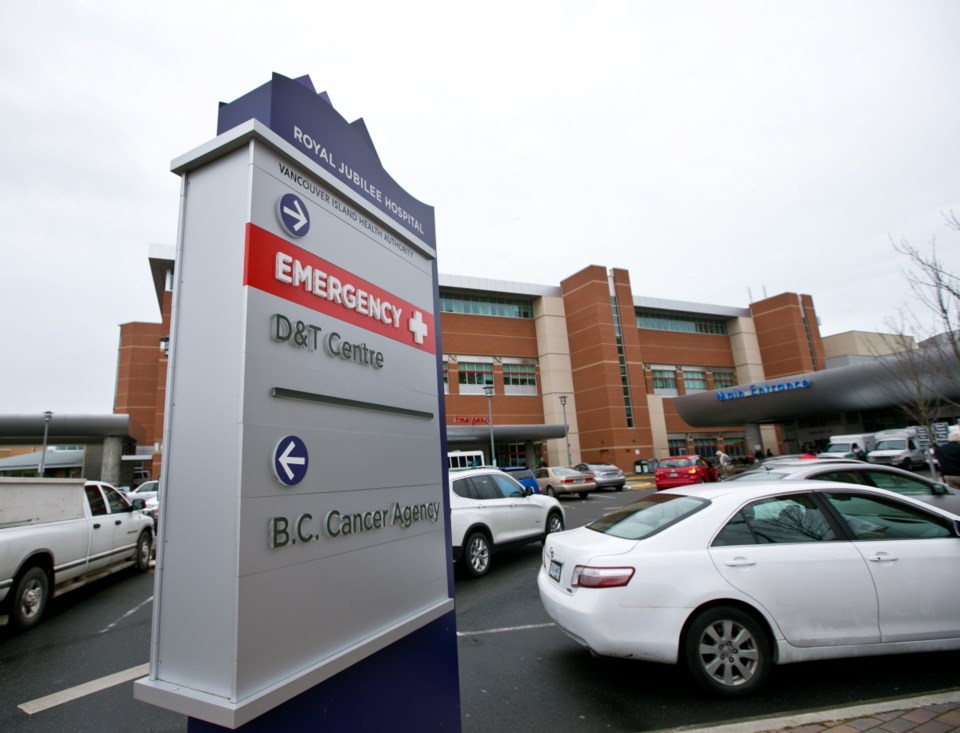Cancer is personal — and, increasingly, so is its treatment.
In B.C., oncologists are taking part in a world-leading clinical study tailoring pharmaceutical drugs to a patients’ unique cancers — what Dr. Janessa Laskin calls the “kind of research that will change how cancer medicine is practised.”
Laskin, a medical oncologist at the B.C. Cancer Agency, is the clinical leader of the personalized onco-genomics project — known as POG — in collaboration with the Genome Science Centre in Vancouver.
There, researchers are taking fresh biopsies of tumours and pulling out the DNA and RNA — the set of instructions that tell a cell how to behave — to find out what’s wrong with those instructions and driving the cancer.
That information is then matched to a pharmaceutical database to find the right prescription drug to target what is driving each person’s cancer. The most effective drug may not even be a known cancer-fighting drug.
“This program is unique in the world, and it’s something that other places are scrambling to replicate,” Laskin said.
Thirty-six years ago, interferon was promoted as a potential cure for cancer.
But scientists in the 1980s who believed in a silver bullet for cancer grossly underestimated the complexity and adaptability of cancer cells, Laskin said.
“When we block one pathway, eventually cancer will figure out a way to go around that pathway,” she said.
Conventional wisdom is that cancer will never be beaten with a single treatment. Instead, cancer mutations will require a personalized and continued multi-pronged attack, much like the multitude of drugs used to keep patients with HIV alive, she said.
“I think we should all aim for cure, but I think we’re a ways off from that,” Laskin said. “I’m an optimist. At the moment, what I think is achievable is to make cancer a chronic disease with treatments that are tolerable.”
The world understands cancer as a disease of the genome; in a cancer cell, there is something wrong with that set of instructions.
“We look very carefully to analyze a person’s normal DNA and compare it to their cancer DNA,” Laskin said. “Everything that falls out from that helps us understand what must be driving the cancer.”
Researchers are trying to amass a critical amount of data to help them apply the new technology into an accepted standard of care for cancer.
But it’s a difficult task — the ability to sequence a genome is quite new and the technology is ever advancing. “In essence, we’re looking at your Motorola flip phone and trying to imagine an iPhone 6,” Laskin said.
Some basic single-gene tests are already part of a standard of care in cancer treatment. The current technology is trying to find a broader scope of targets and then make better use of the drugs that exist, she said.
The technology is experimental because the amount of information generated from “POGging” a patient is so vast that scientists don’t yet understand all of it.
It takes up to 12 weeks to analyze and interpret the data from a fresh biopsy. “We need to make it two weeks,” Laskin said.
But if an average email is about two minutes of data, each POG patient’s analysis is about 27 years of data.
Much of the computation is done by computer algorithm, but PhD-level scientists still have to analyze the data, distil it and read the accompanying scientific literature.
Oncologists are trained throughout the province to enroll patients in the program. There are eight medical oncologists in Victoria trained to do so, Laskin said.
To date, the project has enrolled more than 500 people with incurable cancers. The goal is to reach at least 2,000 over the next five years — including all recurrent pediatric cancers in the province, of which there are about 30 annually.
“This is a collaboration on a scale that’s never happened before with clinicians and genome scientists coming together around an individual person’s case,” Laskin said.
The project’s greatest success will be bringing together a team of multi-disciplinary cancer specialists who can talk to each other, she said. “That doesn’t exist at this level anywhere else in the world.”
Victoria’s Dr. Brad Nelson and Laskin, in Vancouver, are already talking about what Nelson’s T cell therapy could do for POG clinical trial patients whose cancer isn’t responding to pharmaceutical drugs.
Ideally, in the future, a patient’s cancerous tumour will be immediately sequenced and depending on the genetic makeup of the tumour, the oncologist will know what pharmaceutical drug, or immune modulator, or T cell therapy, or combination thereof, is best to target it, Nelson said.
“There is no one cancer treatment that works for all patients, so it’s really about customizing things in the best possible way.”



